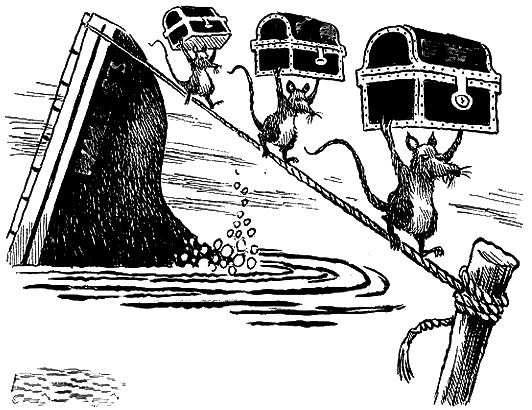Reading for exams, I can’t help but see this passage from Lahti and Weinstein (2005) as an abstract description for what is happening under the current presidential administration. The entire paper promotes understanding morality as group stability insurance, as a tension between enjoying some free riding behavior during times of group stability and success—and doubling down to service the group when stability is threatened from without. But, what happens when the instability comes from within, and from the top? Well, as Lahti and Weinstein (2005) describes it, there’s a “race to the bottom.”
“Variation in commitment can endanger group stability
The principle of stability-dependent cooperation predicts an inverse correlation between the stability of groups and the tendency of their members to adhere to moral rules. However, if the dynamics of human cooperation were this simple, there are at least two potential problems that, when significant, could cause group stability to deteriorate too quickly for individual behavior in service to the group to increase to counteract it.
First, factors influencing group stability can be extrinsic and therefore not under the control of the group. When factors like resource limitation and intergroup competition act quickly, group destabilization may be difficult to anticipate and prevent. If this is true, high group stability and its concomitant low levels of service to the group will lead to an increased vulnerability of the group to fast-acting extrinsic sources of group instability.
Second, positive and negative effects on group stability are asymmetrical. As with many organized structures, an individual has more power to affect group stability negatively than positively. Under circumstances favoring group stability, each cooperator restrains self-service for the sake of the group, but generally contributes to group stability only in a small way. However, if individuals jockey for position within the group, they can initiate a rapid decline in group stability, as the prospect of exploitation shifts everyone’s adaptive strategy away from group service towards self-service. If moral rules are less important to people in times of group stability, and the usual restraints on within-group competition are relaxed, the opportunity would be created for individuals to compete to slightly exceed their neighbors’ moral decay. An individual would attempt to gain the greatest possible benefits from the group’s moral relaxation. The result would be a brace to the bottom, where the bottom is the breakdown of group-serving cooperation and the outright neglect of group stability.
Of course, the dependence of individuals on their group means that when the disastrous race began to threaten group stability, the interests of everyone would be served by reversing the trend and maintaining the group. However, in cases where everyone’s interests are served by community action that is costly to each individual if unilaterally pursued, a tragedy of the commons results (Hardin, 1968). Everyone may continue to pursue actions that are beneficial to no one in the end, resulting in group destabilization. Indirect reciprocity is unlikely to be able to rescue a community from this situation. (Milinski et al., 2002, concluded otherwise, but the situation being described here is different from their experimental milieu. In actual societies, reputational costs and benefits may return too slowly to counteract the immediate benefits accruing to competitors in a race to the bottom). Thus, in both classes of hazard—extrinsic threats as well as races to the bottom—the fast acting nature of the changes is what is expected to jeopardize stability in human groups.” (pp. 56-7)
At a time when Russian hackers are trolling Star Wars fans and the president’s appointees to federal agencies essentially made their money by cheating those exact agencies (such as Betsy DeVos and Ajit Pai), we have both external threats and a situation where the people at the top—typically the unifying force of a group—are leveraging our ever-shrinking stability for personal gain. These are the conditions under which a group collapses.
- Bay, M. (2018). Weaponizing the haters: The Last Jedi and the strategic politicization of pop culture through social media manipulation.
- Lahti, D. C., & Weinstein, B. S. (2005). The better angels of our nature: Group stability and the evolution of moral tension. Evolution and Human Behavior, 26(1), 47–63.

